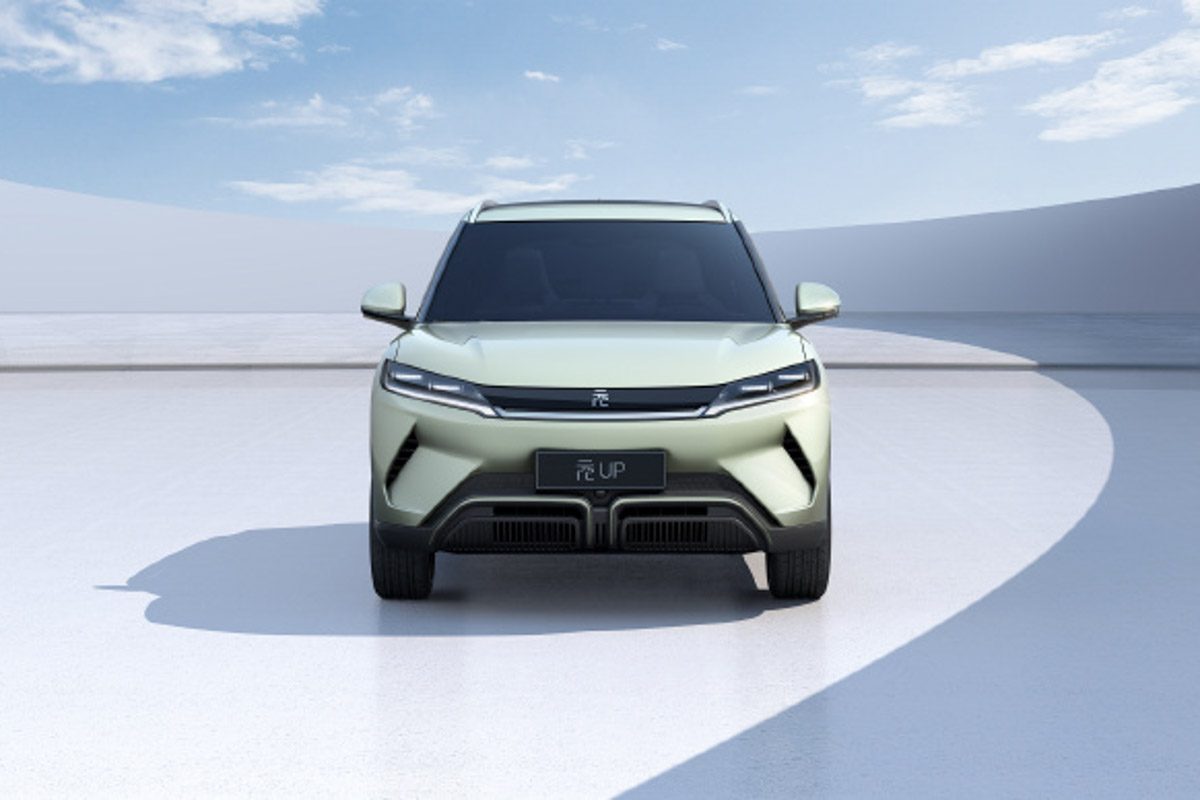EV sales in China: March is the strongest month this year
According to data published by the China Association of Automobile Manufacturers (CAAM), sales of new energy vehicles (NEV) in China totalled around 883,000 units last month. That is 35.3 per cent more than in the same month last year and 85.1 per cent more than in February 2024. The March result is the strongest so far this year, but this is hardly surprising given that the buying mood is always subdued in January and around the Chinese New Year, which fell in the already short month of February this year.
The figures on sales of new energy vehicles published by the China Association of Automobile Manufacturers (CAAM) are the so-called wholesale sales, which include both sales in China and exports to foreign markets. If the new energy vehicles are broken down by individual drive types, battery electric cars accounted for 566,000 units, 15.5 per cent more than in the previous year and 92.5 per cent more than in February. Plug-in hybrids accounted for 317,000 units (+95.1 per cent compared to last year, +73.2 per cent compared to February). FCEVs accounted for 200 sales in March, while fuel cell drives currently only play a minor role in the Chinese passenger car market.
Across all drive types, 2.69 million vehicles were sold in China in March, 9.9 per cent more than in the previous year and 70.2 per cent more than in February. That means the 883,000 new energy vehicles have a market share of 32.8 per cent. For comparison, in February, NEV market share was 30.1 per cent, while the average for 2023 as a whole was 31.6 per cent.
The manufacturer with the most sales of both new energy vehicles and BEVs in March was once again BYD. The Chinese car manufacturer achieved its second-best monthly result (after 341,043 units in December 2023). It sold 302,459 NEVs, which is 147 per cent more than in March 2023, and 122 per cent more than in February 2024. BYD’s New Energy Vehicles also included commercial vehicles, but with 301,631 units, passenger cars made up the majority. Of these, 139,902 were battery-electric vehicles, meaning that BYD sold 161,729 PHEV cars. That means that a good half of all plug-in hybrids in March came from BYD.
Tesla sold 89,064 vehicles manufactured in China in March, including exports. The result is almost identical to March 2023 and is 48 per cent higher than in February. A breakdown of sales in China and exports has yet to be available.
According to its own statement, Geely recorded 94,900 EV sales in March, whereby the company includes not only BEVs and PHEVs but also hybrids that cannot be charged externally. A comparison with other manufacturers is thus not entirely possible. The Geely brand Zeekr sold 13,012 BEVs (+95% YoY), and subsidiary Volvo Cars 74,995 “electrified vehicles.”
In March, manufacturer Changan sold 52,999 NEVs (+47% YoY). The EV brand Deepal accounted for 13,048 units, the Nevo brand for 15,228 units, and the EV brand Avatr, which is supported by Changan, Huawei and CATL, for 5,016 units.
With 21,856 NEVs sold last month, Dongfeng notes an increase of 20 per cent YoY. Voyah sold 6,122 units. Great Wall Motor is on a similar level to Dongfeng, with 21,882 NEV units (+66% YoY). Under the manufacturer’s brand umbrella, the EV brands Wey and Ora recorded 3,608 and 6,022 sales, respectively.
Among the other startups, Nio was ahead of Xpeng with 11,866 BEVs (+14% YoY) in March, followed by Xpeng with 9,026 pure electric vehicles (+99% YoY).
cnevpost.com (CAAM), cnevpost.com (BYD), cnevpost.com (Tesla), nio.com (Nio), ir.xiaopeng.com (Xpeng), zgh.com (Geely), autonews.gasgoo.com (Changan), autonews.gasgoo.com (Dongfeng), autonews.gasgoo.com (Great Wall Motor)





0 Comments